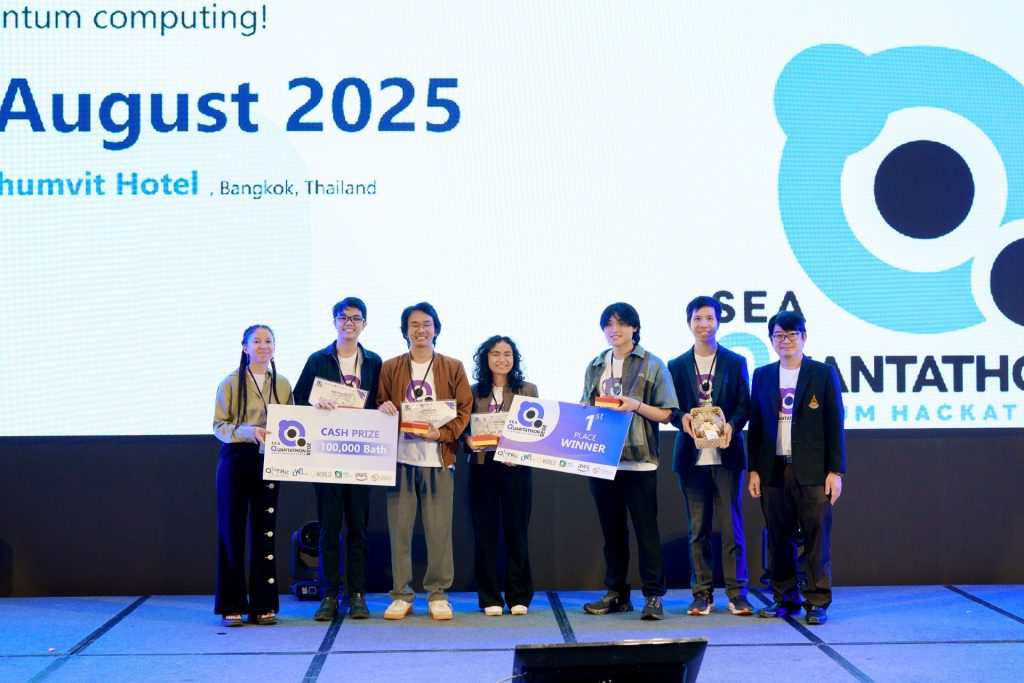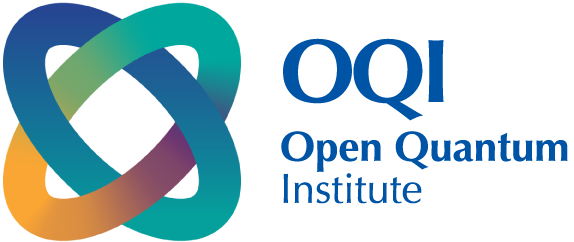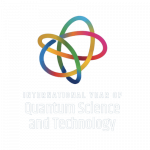SEA Quantum Hackathon harnesses quantum computing for the SDGs
19th August 2025
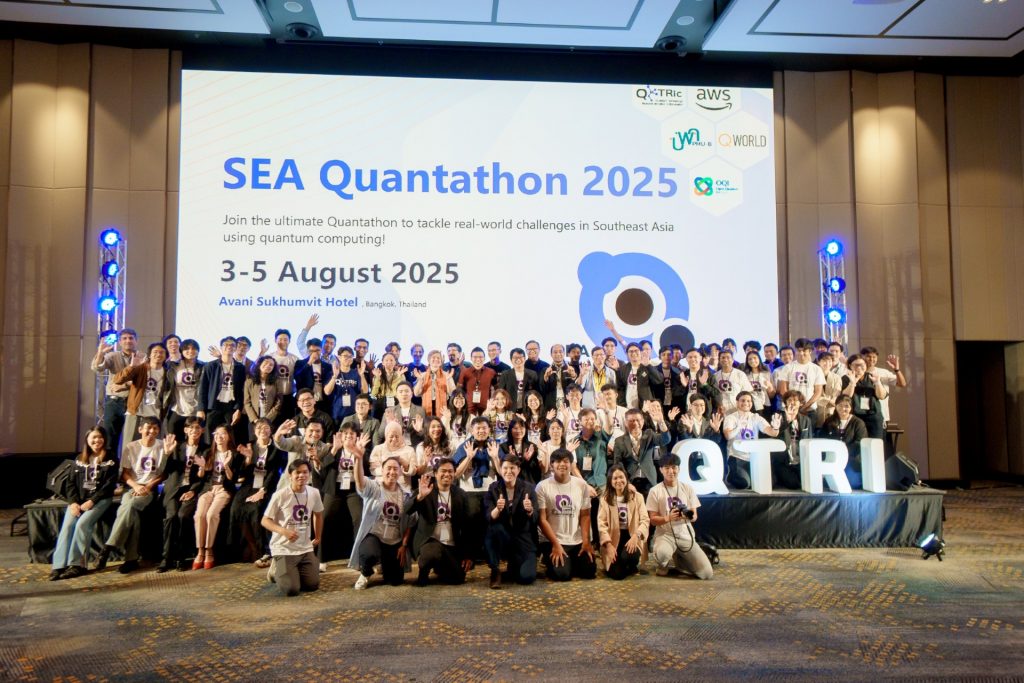
Photos by Suranaree University of Technology (SUT)
Southeast Asia’s first-ever quantum hackathon recently took place in Bangkok, Thailand from 3-5 August 2025, in collaboration with the Suranaree University of Technology (SUT) Quantum Technology Research Initiative Consortium (QTRic), Program Management Unit for Human Resources and Institutional Development, Research and Innovation (PMU-B), OQI, QWorld and AWS. Marking the very first collaborative quantum event between the Southeast Asia countries, the hackathon included coordinators and mentors from Malaysia, Singapore, Philippines, Indonesia and Vietnam.
Students from a diverse range of nationalities and academic backgrounds came together to explore how real-world problems could be tackled using quantum computing and align with the UN Sustainable Development Goals (SDGs). 24 participants formed six teams, tackling pressing societal issues relevant to Southeast Asia, including climate change, medicine and healthcare and renewable energy.
All participants took part in a 10-day pre-hackathon workshop organised by QWorld, designed to equip students with the necessary skills to participate, with no prior knowledge of quantum computing needed. In the three months prior to the hackathon, participants attended online workshops, using quantum computing platforms from qBraid, AWS and Qibo and outlining the business ideation process. There were also talks focused on research and the SDGs, alongside team building sessions with the mentors.
During the hackathon, students experienced the full tech startup journey, from forming ideas to pitching and prototyping their solutions, with the support of technical expert mentors. Projects were evaluated by a panel of judges based on quantum computing technical quality, relevance of the problem addressed by the quantum application for the SDGs and local community, originality and business sustainability and scalability.
real-world impact and aligning with the SDGs. As the hackathon drew to a close, Pharmtom Labs were announced as the winning team.
Pharmtom Labs combines quantum computing with classical computational methods to accelerate early-stage drug discovery. By using advanced screening techniques based on the principles of quantum mechanics, the project aims to make the drug discovery process faster, cheaper and more accurate. Their initial focus is on addressing dengue fever in Southeast Asia, with a long term goal to make treatment more accessible and affordable, ensuring communities in need can receive safer and more effective medicine sooner.
The winning team was made up of:
At OQI, hackathons are part of our broader mission to make quantum education accessible globally and to ensure that the technology is developed equitably and inclusively. During the event, Audrey Himmer (Capacity Building Project Manager at OQI) presented several of our educational initiatives, including our educational consortium, the Hackathon in a Box toolkit and the Quantum Diplomacy Game – an interactive role-play game designed to explore the geopolitical implications of quantum computing as an emerging technology.
The SEA Quantum Hackathon represents an important milestone for advancing quantum education in Southeast Asia and reinforces the importance of global collaboration and building capacity towards ensuring the technology is developed for the benefit of all.
